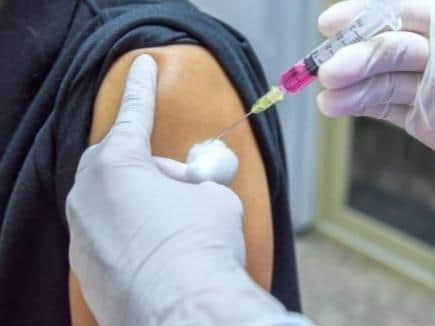Care home staff in Milton Keynes among the first to receive the new Covid vaccine
and live on Freeview channel 276
The city's vaccination programme started on Tuesday with priority being given to people over the age of 80 and frontline healthcare workers.
Staff at PJ care, which has two care homes in MK, were among the first in the queue.
Advertisement
Advertisement
The company's chairman, Neil Russell said: “We wanted to be at the forefront of the vaccination programme as our residents are extremely vulnerable,” he said. “We have many staff who will be vaccinated over the next few days and more are keen to follow.”


Vaccination isn’t compulsory for staff but PJ Care hopes as many as possible will take part.
Because of the need to keep the vaccine at extremely low temperatures, residents won’t be able to be vaccinated until a method is found to safely transport the vaccine into care homes.
PJ Care operates Mallard House in Grange Farm and Bluebirds in Shenley Lodge. The centres provide specialist neurological care for adults with degenerative conditions such as dementia, Huntington’s disease and Parkinson’s disease. They also offer rehabilitation for people with acquired brain injuries.
Advertisement
Advertisement
Neil said: “Those of our residents with awareness of the current situation are keen be vaccinated,” continued Neil. “As soon as there is guidance as to how we can do that, we will make that possible for them. Our aim, like every care provider, is to ensure the safety of our residents and to move back towards normality. We recently opened visitor ‘pods’ at our Milton Keynes sites so families can visit their loved ones in safety. While they’ve allowed them to see each other, these are still non-contact visits on either side of a glass screen.
“We decided against using lateral flow tests for visiting relatives because they are not reliable, and therefore not safe to use in this environment. We hope the vaccine will, eventually, give families the chance to hold each other again which is what they want to be able to do more than anything.”